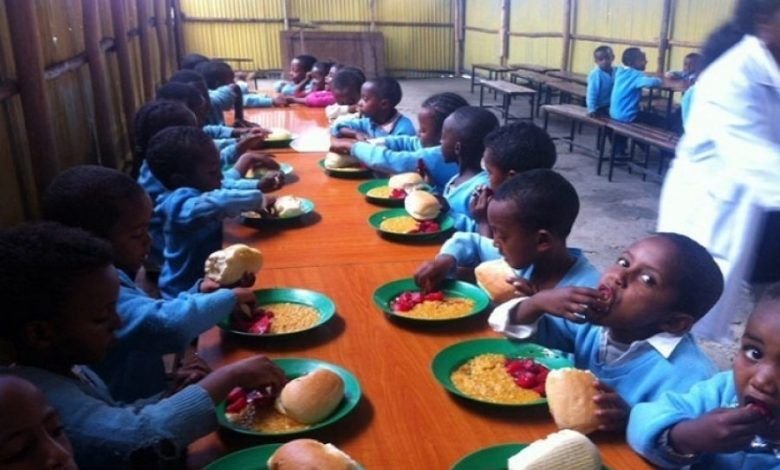The federal government has announced plans to extend the National Home-Grown School Feeding Programme (NHGSFP) to not only include students in public primary schools but also out-of-school children, aiming to provide meals to 50 million children by 2026.
In a statement in Abuja, Aderemi Adebowale, the National Programme Manager of the National Social Investment Programme Agency (NSIPA), indicated that the expansion will encompass all primary grades and children who are currently not enrolled in school.
“We are broadening the program to cover students from primary 1 to 6, as well as out-of-school children, who will be gradually brought into the program.
“By 2026, our objective is to feed nearly 50 million children throughout Nigeria,” she said.
Regarding funding, Adebowale mentioned that the NSIPA has created a framework to stabilize food prices by directly collaborating with farmers, suppliers, and aggregators.
“With this setup, we will not depend on fluctuating market prices. Instead, we will negotiate and establish fair prices with our vendors and farmers to ensure a steady supply and reasonable costs,” she explained.
She noted that the cost of each meal will range from ₦500 to ₦1,000 daily.
“Even at ₦500 per child, it is feasible to provide a nutritious and delicious meal every day,” she added.
Read also:
- FG to expand homegrown school feeding program, targets 20m students
- Minister launches alternative feeding programme for out-of-school children
- FG relaunches school feeding programme to target 20 Million out-of-school children by 2026
This initiative builds on the Renewed Hope National Home-Grown School Feeding Programme (RH-NHGSFP), which was launched on May 27, 2025, under the leadership of Nentawe Yilwatda, who was then the Minister of Humanitarian Affairs and Poverty Reduction and is now the national chairman of the All Progressives Congress (APC).
The project, initiated in partnership with the National Commission for Almajiri and Out-of-School Children Education and the National Identity Management Commission, was originally aimed at supporting 20 million vulnerable children.
At that time, Yilwatda described the initiative as a crucial component of President Bola Tinubu’s national social investment programme, designed to alleviate poverty and enhance educational enrollment across the country.






